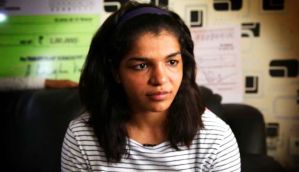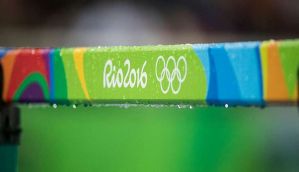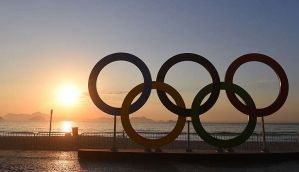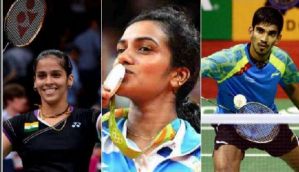
Rio 2016 is a celebration of the biggest and best achievements of men and women athletes from all parts of the globe. The Olympics have been particularly useful for showcasing the sporting prowess of women to the world. There have been a multitude of firsts for women over the past 120 years of Olympic history. But a closer look at the games shows that gender inequalities persist today: women are still playing a very long game of catch up with the men.
For example, women first played football in the 1996 Olympics: a remarkable 96 years after it was introduced for men. Athletics - a sport from the ancient Olympics - was included in the first modern Olympics in 1896, but only introduced for women in 1928. And even then, the women's first marathon was not run until 1984. Each celebrated first represents years (if not decades) of struggle, on a seemingly never-ending trudge toward equality.
More recently, London 2012 was lauded as a major triumph, as all sports were open to women. But you needed to read the small print to realise that "all sports" does not equate to "all events". Men continue to compete in more events, and receive more medals, than women. This year, in Rio, athletes will compete in 306 events: 161 events for men, 136 events for women and nine mixed events.
A slow start
Some sports still ban women from particular events: canoe-kayak remains one of the most unequal sports in the Olympics. Women have been excluded from canoe since 1936. In Rio, women will compete in five kayak events - compared with the six kayak and five canoe events provided for men across the slalom and sprint categories.
Hopefully, this may change in 2020, as the International Canoeing Federation has proposed a more equitable programme to the IOC. Years of activism by supporters of women's canoeing have led to this change and the fight for equality continues with a petition on Facebook encouraging supporters to "Vote YES for Women's Canoe".
Likewise, men still have one more event in athletics than women, as women are banned from the 50km race walk. Recently, the IAAF has ruled that women can compete in the event as part of the men's race, so it is possible that change is on the cards for the Olympics as well.
In its plan for future games, Agenda 2020, the IOC stated that it is working towards the goal of having an equal number of men and women competitors. Part of this will be encouraging international federations and organisations to create equal sports provision for women.
A sluggish pace
As this brief history shows, the battle for equality has been waged sport by sport and event by event - so it's hardly surprising that progress has been slow. That's why it's time to move away from these localised battles, and refuse to tolerate inequality in any sport.
It's not going to be easy. Sports are often limited to a particular number of medals and participants by the IOC. Giving women more events may mean taking away events from the men's programme, or changing events for both men and women.
When the IOC refused to increase the number of medals awarded in the track cycling programme, the UCI made the tough decision to remove some events and decrease the number of medals awarded to men in order to offer men and women the same number of medals in the same five events.
Sporting traditions also play a role, and can be difficult to change. This can, perhaps, be seen most clearly in male-dominated combat sports. For example, wrestling has been on the men's programme since 1896, but was only added to the women's in 2004. Prior to Rio 2016, the IOC pressured the sport to modernise or face being removed from the Olympic programme. One of the changes included making the freestyle programme more equitable by increasing the number of women's events from four to six, and reducing the men's from eight to six.
The increasing move towards offering an equitable programme of events for men and women can mean that women from all countries are finding the door to sports opening - even those which are not viewed as traditional for women.
The Greco-Roman form of wrestling remains entrenched as a men-only sport with six categories and no concrete plans to change. This again may be challenging as the IOC only allows 18 medals for freestyle and Greco-Roman wrestling combined, so adding women's events would mean reducing the number of categories for men.
A sprint to the finish
The gendered organisation of sport was traditionally based on beliefs about women's inferior physical capabilities, and a sense of propriety. The structure of sports today still implies that women are less capable - though often in more subtle ways.
Women compete in the eight-event heptathlon, rather than the ten-event decathlon. In swimming, the men's longest race is 1,500 metres, while women's is 800 metres - a fact which has not escaped fans of US swimming superstar Katy Ledecky. And even if canoeing changes its programme for 2020, the 1,000 metre "blue ribbon" event will likely be reserved for men.
These discrepancies are better explained by sociology than physiology. We have evidence that women are capable of race-walking 50km, canoeing 100, 200 and 5,000 metres, and swimming 1,500 metres. But when women compete in the same events as men, it begins to blur the boundaries between men's and women's capabilities - and some people don't like that.
Women have been second-class citizens in sport for so long that one small step can feel like a giant leap forward. But the time has come to stop being patient; to stop accepting incremental changes; and to start sprinting towards equality at the Olympic Games.
![]()
Laura Hills, Senior Lecturer in Sociology of Sport, Brunel University London
This article was originally published on The Conversation. Read the original article.
First published: 12 August 2016, 9:00 IST






![BJP's Kapil Mishra recreates Shankar Mahadevan’s ‘Breathless’ song to highlight Delhi pollution [WATCH] BJP's Kapil Mishra recreates Shankar Mahadevan’s ‘Breathless’ song to highlight Delhi pollution [WATCH]](https://images.catchnews.com/upload/2022/11/03/kapil-mishra_240884_300x172.png)

![Anupam Kher shares pictures of his toned body on 67th birthday [MUST SEE] Anupam Kher shares pictures of his toned body on 67th birthday [MUST SEE]](https://images.catchnews.com/upload/2022/03/07/Anupam_kher_231145_300x172.jpg)






